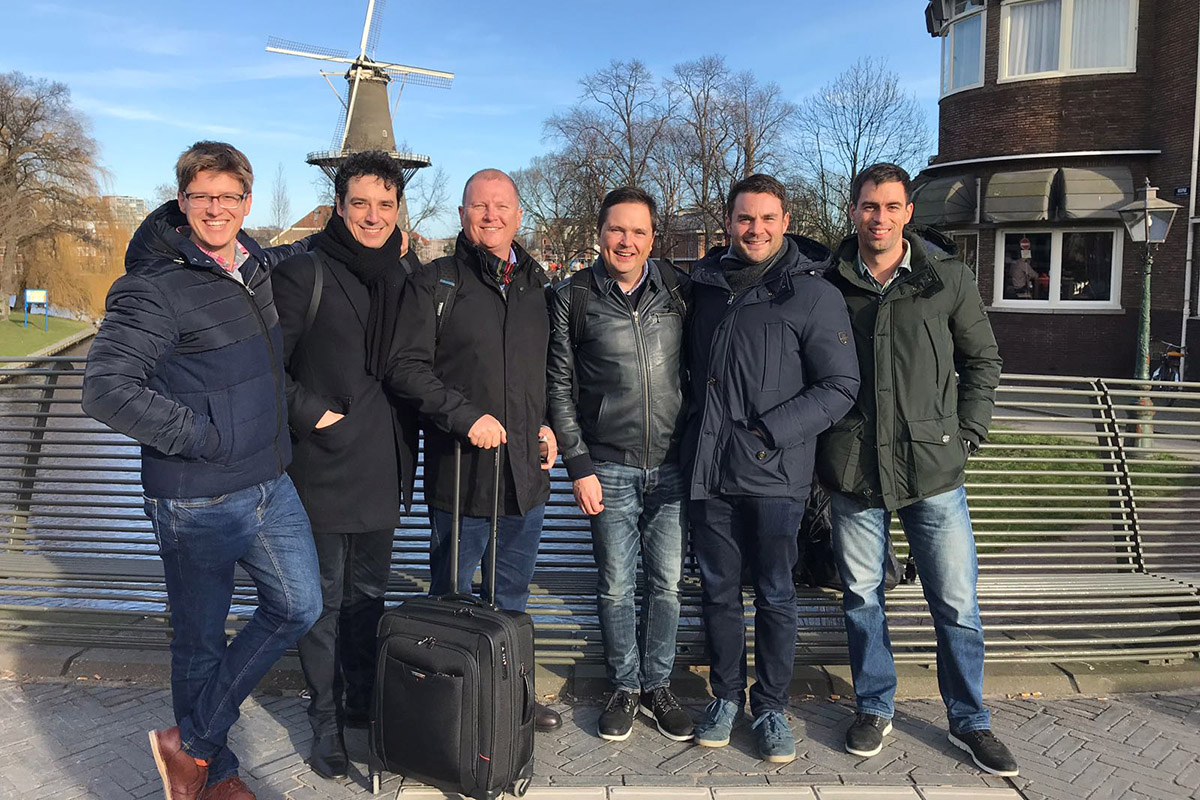It has been a year since CJ Wegner packed his bags and joined the Atterbury Europe team in the Netherlands as group accountant. We caught up with the youngest member of the team, to find out how he’s settled into the European business world.
What do your responsibilities on the team entail?
I am responsible firstly, for the review of the financial sections in the monthly management packs for Romania, Serbia and Cyprus.
Secondly, I prepare the quarterly Atterbury Europe B.V. fully consolidated financial results, reported in the board packs, and I also prepare annual statutory financial statements for all Atterbury Europe B.V. subsidiary companies. Lastly I prepare the annual Atterbury Europe B.V. consolidated operational and financial budgets.
The last time we spoke you could only say “dank je wel”… how has your command of the Dutch language progressed? Would you be able to conduct business in Dutch yet?
Fortunately and also unfortunately (I guess) we don’t do any business in Dutch. All emails and formal documentation to the countries we do business in – Romania, Serbia and Cyprus – are drafted in English. The Dutch however do recognise English as their official business language over here.
I find the language fairly difficult; even though its vocabulary overlaps with that of Afrikaans, the structuring of sentences and pronunciation of words are worlds apart from Afrikaans. But at least I can say more than just “dank je wel” after 12 months living here and have the local field hockey team to thank for that (which I joined several months ago here in Leiden). All messages and arrangements on the hockey group chat are in Dutch and it forces me to read, write and speak Dutch to a certain extent on a weekly basis ahead of the games and training sessions.
Give us an idea of where you live in relation to the office. What has been the biggest adjustment for you with the move to the Netherlands?
I live about 1.5km from our office and Leiden Centraal train station, which is a convenient seven to 10-minute cycle, depending on the bicycle traffic of course. The biggest adjustment with the move to the Netherlands by far was getting used to the weather conditions during the freezing cold European winter, and the constant rainy Dutch weather. One is forced to cycle in all weather conditions, any time and day of the year and I have cycled in several snow-, rain- and hailstorms during winter.
That sounds taxing! And what do you enjoy most about living in Holland?
The convenience of getting from point A to point B with either a train, bus or tram. Public transport is on point in the Netherlands and all forms of it run effortlessly and efficiently.
What has surprised you most about your new life?
Although I must admit one’s body easily adapts to the European summer and winter clocks, I find it very difficult to fall asleep during the summer months with the sun only setting around 23:00!
Have you been home to visit yet, and have friends and family come to visit you?
Yes, I was fortunate enough to have spent the 2017 festive season in South Africa, and enjoyed the summer weather with friends and family. My parents have also recently visited me here in the Netherlands and I had a great time showing them around.
What do you miss most about home?
A decent piece of South African farmed steak is what I miss the most. Over here red meat is relatively expensive and not even close to being as tasty as what we’re used to.
As a bonus, you must have a lot of opportunity to travel…
Yes, the mobility here for travelling throughout Europe is great! It allows one to hop on a plane and do a quick weekend get-away to another country. All the main European attractions are just a short flight away, which is a huge advantage.
How does the working environment differ from that in South Africa?
The working day in Europe starts and ends later. Europeans generally start working from 09:00, whereas starting as early as 07:00 isn’t unusual in South Africa. Our office starts at 08:00, super early for Europe, but normal for South Africa, which allows us to avoid most of the traffic. Other than that, my experience of how the Dutch go about their working day is much the same.
Did you have to learn to do things differently, implementing Dutch methods of bookkeeping?
Previously our financial records were kept in Dutch GAAP and we recently made the transition to IFRS (International Financial Reporting Standards). So I had to grasp an understanding of the differences between Dutch GAAP and IFRS to reconcile the transition effectively. Aside from the above, all of our financial reporting is performed on IFRS which is also the internationally recognised accounting standards applied in South Africa.
How have you experienced the Atterbury slogan “It’s a matter of association” over the last year, working abroad?
“It’s a matter of association” has truly became a part of me and my daily routine, as I interact with so many different nationalities and people from different backgrounds and cultures during my visits to Romania, Serbia and Cyprus. By “wearing” and embracing the Atterbury brand wherever I go, I strive to have a positive effect on the people I deal with, so that they will always want to associate themselves with Atterbury, and with me.

